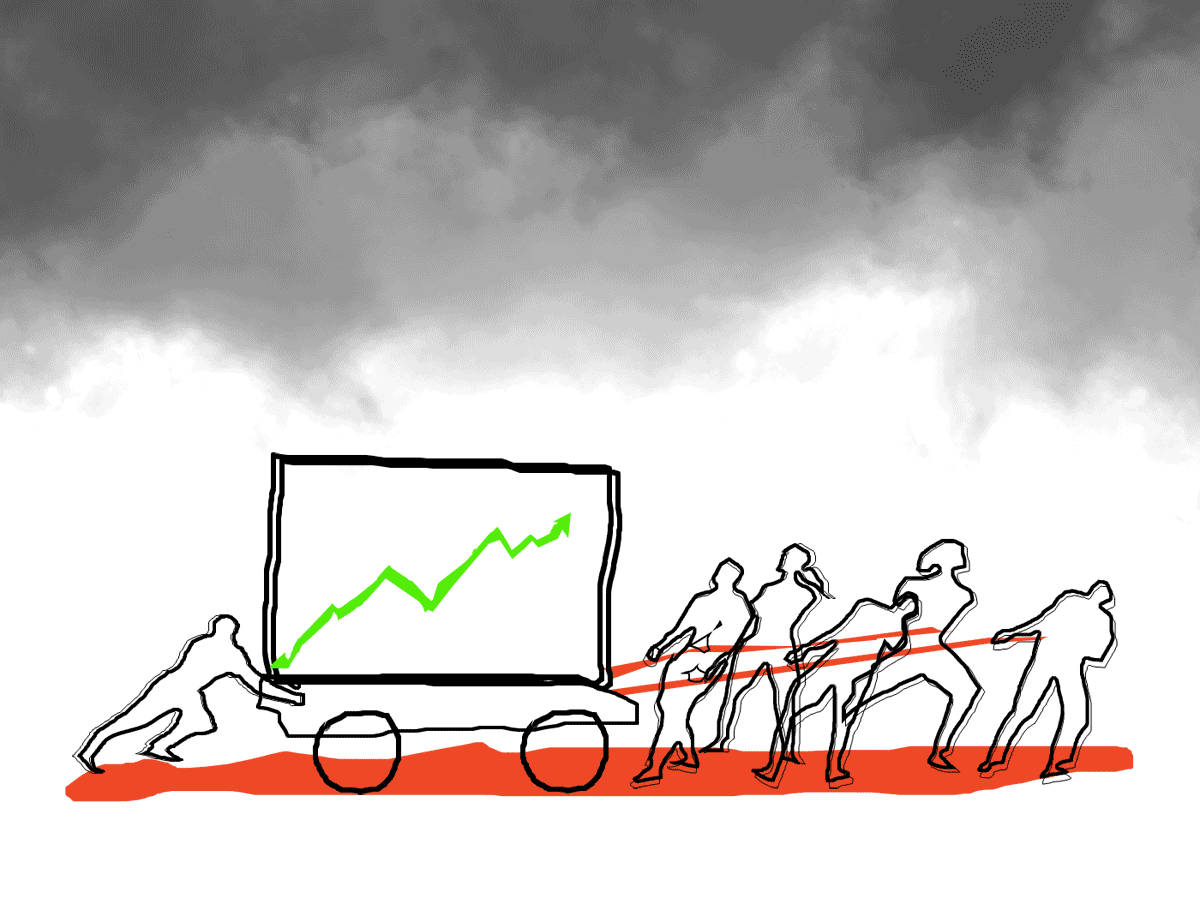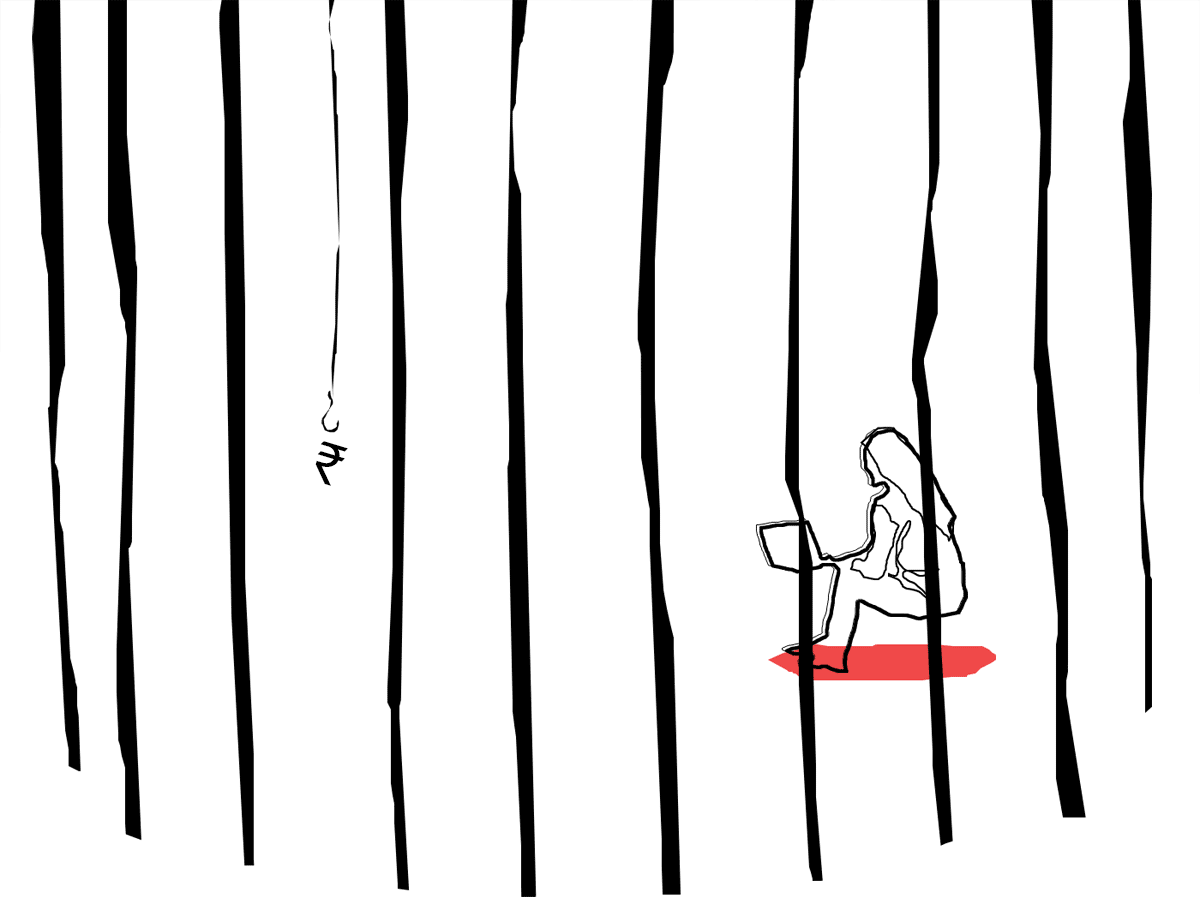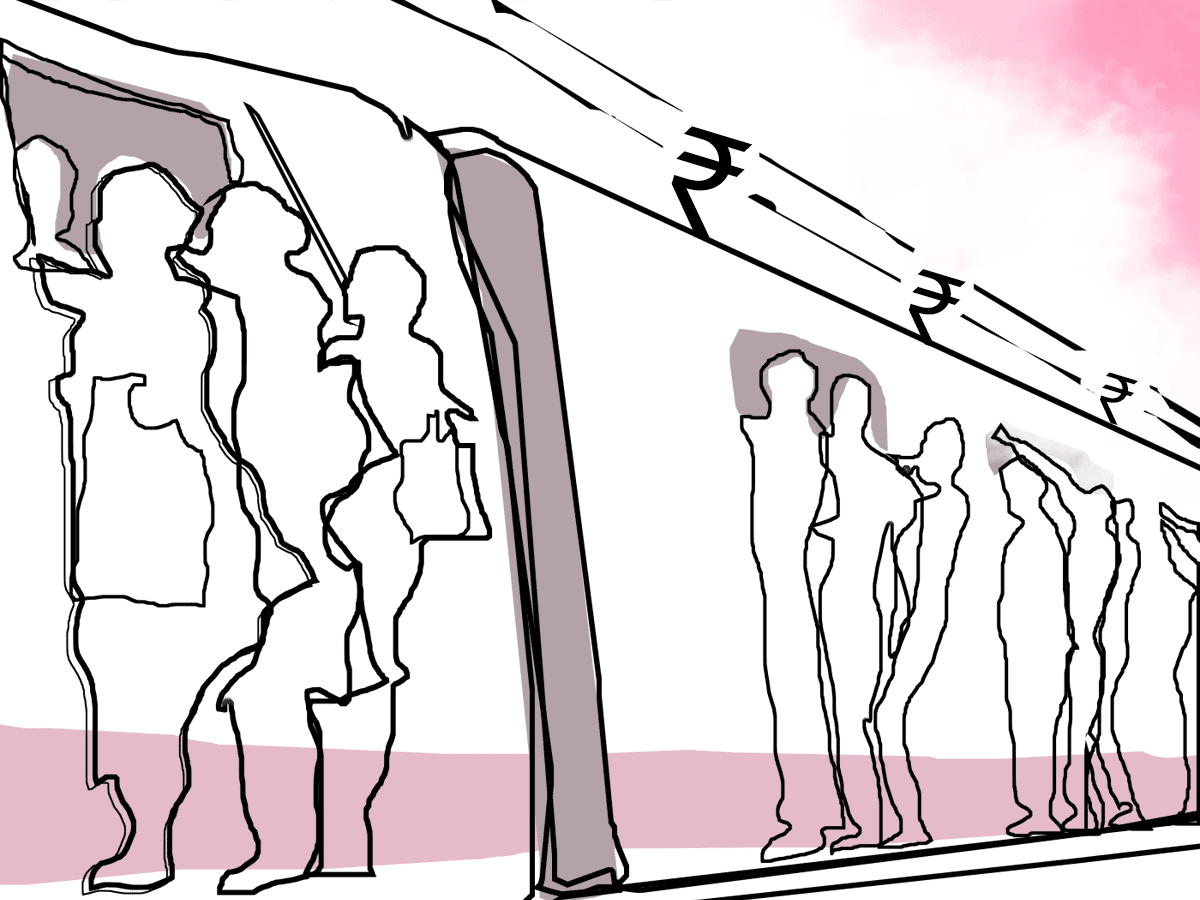'Alongside economic growth and the Asian century, stress has become an Asian caravan.'
'But stress doesn't arrive in one's country as invitation to taste exhaustion. It comes dressed as a challenge.'
'Its evangelists ask: Are you man enough to shoulder stress?' points out Shyam G Menon.

In September 2024, comments by Finance Minister Nirmala Sitaraman following news of a young woman succumbing to what her parents alleged was 'work pressure', sparked criticism.
The demise of the young woman awaits investigation and as per media reports, the company she worked for has refuted the allegation.
When the minister's remarks received flak on social media, she pointed out that she had no intention of shaming the victim, hadn't named the person or the firm and was speaking at a university, which had set up a meditation hall and a place of worship for its students.
So, what did the minister say in the first place?
A sad demise
On September 23, NDTV quoting news agency PTI, reported the following on the minister's speech: 'Our children go to colleges and universities for education and come out with flying colours.
'A company, without mentioning its name, it's a partnership.
'There, a woman who had studied CA well (was) unable to cope with the work pressure.
'Two-three days ago, we received news -- she died unable to cope with the pressure,' she said.
'What should families teach -- whatever you study and the job you do, you should have the inner strength to handle that pressure and this can be achieved through divinity only,' she said.
'Believe in God, we need to have God's grace. Seek God, and learn good discipline.
'Your Atmashakti will grow only from this. The inner strength will come only with growing Atmashakti,' the minister added.
'Educational institutions should bring in divinity and spirituality. Then only will our children get the inner strength, it will help in their progress and that of the country.
'That is my strong belief,' the minister said, according to news agency PTI.
The minister's observations were construed by the media as referring to the sad demise (in July) of Anna Sebastian Perayil, the 26-year-old former employee of Ernst & Young (E&Y).
Her parents blamed work pressure for the untimely passing.
Work-life balance or plain meaningless work?
The minister is entitled to her observations (speaking for myself, I don't agree with divinity promoted as a sole route to inner strength). But in her choice of words, work pressure may have come across as a given in today's times.
Read alongside the suggestion that one find the ability to cope with the pressure, it risks elevating high pressure work environments to anexalted plain.
A sort of proving ground with those commanding the inner strength to tackle it emerging the ideal type.
Inadvertently, a Procrustean bed was born. Social media erupted at the apparent insensitivity in the minister's words, leading to the clarification she had to subsequently issue.
As followers of a creed with a weakness for 'super' things (including super human beings), I expect Right-Wing politicians to highlight the wonders of inner strength.
Where I disagree is in evoking said inner strength to gloss overthe excesses of a very tangible industrial society.
Although most people rarely admit it, I suspect, the surrender of companies to money and profit and their need to see everything through that prism, have made work boring (ahead of it becoming exhausting).
On the other hand, ever higher specialisation in education and the blinkered view of existence denizens of the corporate world have, encourage a keyhole perspective wherein boring doesn't count.
Add to it access to big money, the corporate world's influence on general life is far bigger than what its actual merits, warrant.
We live in times of corporate leaders considered visionary and pressure at work places solved through terms like 'work-life balance.'
Few wonder if it's a case of balancing work and life, or work failing to make sense to life.

Atmashakti and the colonial period
To put the above point in perspective, one should perhaps travel back in time and imagine the period when the British colonised India.
The top officials of colonisation and their drive for profit and productivity may have been visionary in the London of that century.
Today, we have no hesitation in calling colonialism the abuse of a country by another.
Will we change our perspective if the abuse also helped an industrial empire register great progress, whatever the yardsticks used to denote said progress?
If those officials overseeing colonies put in 70 hours of work per week, will it erase the questionable aims for which, colonialism existed?
Or take the case of North America's plantation owners who legitimised slavery.
There was likely no ceiling on the work hours they could demand.
If a slave survived such excesses, do we admire his/her atmashakti, praise human adaptability and spare slavery question?
That's the lacuna in blind fascination for inner strength. It's one thing being in awe of human potential; it's another, overlooking basic human values.
There are a few angles we must concede in our age of increasingly educated and aware human beings and work dumbed down by the compulsion to worship money.
The first is that any human being would notice that a convincing, larger framework of sustainability is absent in the contemporary predicament of many industries.
People of my generation (now in their fifties) and those of the younger generation know well that the elders are passing on to the youth, a planet troubled at various levels.
Young people know they must cope with climate change. It is the biggest legacy of a couple of senior generations set to exit.
Then there are humanity's unending conflicts and its baggage of traditions, religions and cultural compulsions; the whole identity politics hassle giving India and the planet a solid headache.
Coupled with the excesses of modern-day consumerism, all these issues have become so critical that it's tough visualising what lay ahead. Consequently, people work to get an income and save their butts.
A close adjunct herein is the problem of jobs capable of engaging the intelligent, also becoming fewer.
Aside from preserving self and family, the sum total of one's work doesn't feel meaningful. Over time, this morphs into a trap.
The best employee is the one willing to mindlessly shovel drudgery the most. It's why some of the evangelists of work pressure market long hours of work for the first few years at least, as a rite of passage.
What we forget to do is ask ourselves if the work really engages. Isn't it true that the corporate world is easier sold to the gullible than to those who are aware?
Second, surviving as it does in a severely competitive world, our modern-day company measures human performance minutely and down to the tiniest detail.
For example, much has been written about how employment conditions at some e-commerce giants overseas restricted time for taking toilet breaks.
Does a world of this sort seem A great candidate for inner strength leveraged to endure work without toilet breaks?
Or is it one, wherein employees and maybe people at large, should call for a comprehensive review of what work and employment mean in our times?
Instead, what we find is calls for a superior version of ourselves to endure conditions at work.
Overlooked is excess emphasis on atmashakti at the expense of questioning may land us with more boring than interesting.
In politics, blind faith in inner strength and no questions asked is a fine way to serve fascist outfits.
Stress caravans serving a few
Third, compliance with existing models of work, demand for long hours at work and high productivity needn't automatically strengthen the hands of entities (like the State), we usually count on for everyone's welfare. This is because currently, we are witnessing disparity in the distribution of wealth.
As money lines the pockets of an industrial and technology-owning elite more than the rest, the average Joe diligently working longer hours could make the elite get rich faster than himself or the State.
Don't forget the last time somebody mentioned taxing the Indian rich, it became a huge controversy. This specter of increasingly unequal wealth ownership was among reasons why the recommendation of a 70 hours-work week by an Indian infotech czar some time back, met with criticism.
We can't have longer work hours and rising inequality in income and wealth ownership, at the same time -- can we?
Nobody disputes the fact that the IT czar in question worked long hours to build his partnership firm. But today infotech is a mature business.
Further, it's juvenile for anyone to assume oneself as role model for others simply because one became monetarily successful and contributed to GDP.
Is money all that is there between our ears? Is money all we have to tell our children on a troubled planet?

Fourth, there is a photograph from my childhood I never forget.
Back in the 1960s and 1970s, Japan's ascent to being an Asian economic tiger was documented by some books. One of them, still there in my uncle's library, had a photograph of peak hour travel in a Japanese train. It showed tired executives packed like sardines. There were also pages devoted to the problem of work-induced stress.
By the time the Indian economy commenced its post-liberalisation growth story and I experienced peak hour commute in a Mumbai suburban train, both economic growth and stress had travelled through South Korea, South East Asia and China, mimicking Japan's financial ascent. It was now India's turn and it was only a matter of time before stress struck.
Alongside economic growth and the Asian century, stress has become an Asian caravan. But stress doesn't arrive in one's country as invitation to taste exhaustion. It comes dressed as a challenge.
Its evangelists ask: Are you man enough to shoulder stress?
Today this Procrustean bed reaches right down to India's schools and colleges, where millions prepare for a career, typically in very competitive fields.
Needless to say, farming inner strength as panacea has also become a parallel money-minting industry.
In service of an abstract corporate greatness
Friends I spoke to reacted differently to the untimely demise of the young employee.
Some felt that underlying medical conditions should be probed in cases of untimely demise at work. Others felt that periodic medical check-ups and only the fit working high pressure jobs (a lovable option for the Spartans in our midst) would help limit such cases.
Still others said that the demise underscored the relevance of trade unions. Unions exist to protect employees.
India's trade unions have been weakened just when a new generation requires them. And yet, all these are merely treatment of the symptoms.
The virus causing the disease, they agreed, is as much social as it is industrial or driven by profit.
For instance, why should meaningless stress be something to overcome using atmashakti?
If the cause for stress is stupidity incarnate, why not walk away? And if one should walk off so, what kind of education, values and view of life should one possess?
The emergent uncertainty around what work means (toxic work places and the toxicity spread by toxic persons come only after that) didn't appear encompassed in the finance minister's call for inner strength and atmashakti.
In its absence, she seemed sadly in service of an abstract corporate greatness, visible to her and many of her generation but non-existent to others.
Shyam G Menon is a freelance journalist based in Mumbai.
Feature Presentation: Ashish Narsale/Rediff.com








